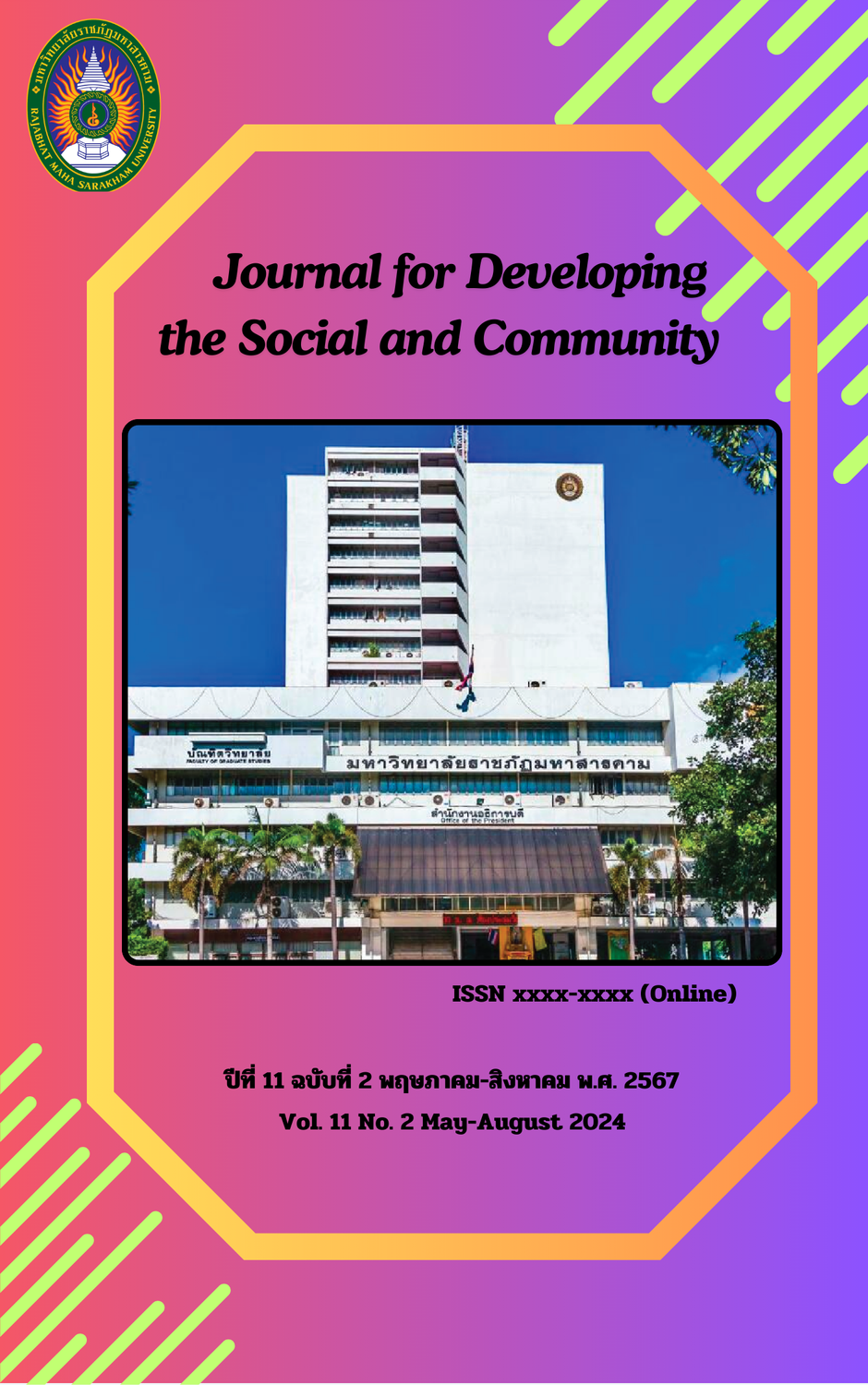Awareness of Global Citizenship among Thai youth : Political Roles in a Democratic System
Keywords:
behavior, Thai youth, The political role of youth, Citizenship in a democracyAbstract
The research article of “Awareness of Global Citizenship among Thai youth : Political Roles in a Democratic System” aims 1) to study the factors affecting the change in citizenship awareness of Thai youth : Political Roles in a Democratic System 2) to study Roles and the Political Movement of Thai youth during 1932 - 2020. This article was using historical research method through documentary research. and will present the results by Analytical Description.
The results of the study showed that Citizenship awareness of Thai youth varies from time to time. The key factor was the education policy of the Thai government at that period by encourage Thai youth to meet with their ideologies and political goals. Which can be divided into 4 periods: 1) Democracy period 1932-1937 - This is the time when the Thai government wants to raise Thai youth awareness about democracy and freedom. By establishing the relationship between the government, which had a Constitution as the most importance in politic, and the people. 2) Nationalism period 1938-1944 – Thai youth in this period realize that to be a good citizen they must be obey the government and despise the other that does not meet the government definition of “Thai”. 3) The United States of America period 1945-1973 – Thai youth had two mind sets: conservative and progressive in this period. This is a result of the conflict between the Thai youth education policy of the Thai government and the United States which leading to the conflicts between Thai youth and the government. 4) Globalization period 1974-2020 - Thai youth are influenced by globalization in two ways: technology and international organization. Which resulted in an ineffective attempt to instructing Thai youth to be obedience through the education system and raise the awareness of the citizenship that no longer abided to Thai nationalism. And make Awareness of Global Citizenship that out side Thai’s Nationalism and this is the Roles of Thai youth foundation at Expression Awareness of Global Citizenship in Political a Democratic System Continuing until the Present.
References
Aree, S. (2020). How did Iranian scribes record about the “Siamese people” during the reign of King Narai? Retrieved from https://www.silpa-mag.com/history/article_43691
Asawinwichit, K. (2017.). Governance in a democratic regime in the era of globalization. Retrieved from http://elibrary.con institutionalcourt.or.th/document/read.php?bibid=11475&cat=4&typ=4&file=IS4D_590401.pdf
Bhumiraruen, E. & Rotphon, N. (2017). “Creating Good Citizens as the State Wants Before the 1958 Revolution”. Veridian E – Journal, Silpakorn University, 10(1), 1590-1603.
Bunnag, P. (2004). The Thai government's policy towards Thai Muslims in the southern border provinces (1932-1973). (3rded). Bangkok: Academic Publication Project, Faculty of Arts, Chulalongkorn University.
Burusphat. K. (2015.). Chinese people in Thailand and political problems. Retrieved from http://www.library.polsci.chula.ac.th/dl/ade468a1a826d9e620dc0b3acf0cabb9
Chularat. C. (2020). The first “Iranian” in the Siamese royal court since the Ayutthaya period. Retrieved from https://www.silpa-mag.com/history/article_43733
Darling, F. (1962). American Policy in Thailand. The Western Political Quarterly, 15(1), 93-110.
Intharat, W. (2019). Social studies and the creation of good citizenship under the Thai political regime. Hatyai Academic Journal, 17(1), 85-101.
Kuldilok, P. (2017). Social movement through new media in the globalization era. Academic Journal of Humanities and Social Sciences Burapha University, 25(49), 59-77.
Mongkhonkham, A. & Chirasattham, N. (2019). Book Review: Thai-Siamese Political History 1932-1957. KKBS Journal of Business Administration and Accountancy, 3(2), 97-101.
Na Pomphet, W. (2020). The People's Party reveals the cause of the '1932 Revolution', the beginning of the deterioration of the absolute monarchy? Retrieved from https://www.silpa-mag.com/history/article_49539
Na Pomphet, W. (2021). French-Ayutthaya relations to foreign records reflecting politics-economics-society. Retrieved from https://www.silpa-mag.com/history/article_41397
Nimnuan, N. (2016). Politics in Thai Secondary School Curriculum between 1960-2008. Bangkok: Thammasat University.
Office of the Secretariat of the House of Representatives. (2016). Youth and Participation in Developing Democracy. Bangkok: Office of the Secretariat of the House of Representatives.
Ploysangcha, K. & Wanichkul, J. (2017). Development Model of International Standard Schools for Small Schools under the Office of the Basic Education Commission. Abbreviation Name: SWU Educational Administration, 14(27), 99-107.
Saenphum, S. et al. (2019). Students and political movements on the first anniversary of the coup d'état by General Prayut Chan-o-cha. Veridian E – Journal, Silpakorn University, 10(1), 1089-1105.
Sarasas Office. (1967). History of the Universal Church and the Church in Thailand. (2nd ed). Bangkok: Sarasas Office.
Sopha Palabut. (1932). A textbook for reading the duties of citizens, volume 1. Bangkok: Wat Sangwet Printing School.
Sopha Palabut. (1933). A textbook for reading the duties of citizens, volume 2. Bangkok: Wat Sangwet Printing School.
Thiantaworn, W. (2018). Thai politics after the change of government in 1932 to the present. Retrieved from https://www.matichon.co.th/article/news_1023165
Triyaprasit, C. (2016). The construction of Catholic citizenship imagination in Thai society. Journal of Social Sciences, 46(1), 27-50.
Uthama, N. (2016.). Globalization-Globalization and Economic Driving. Retrieved from http://rs.mfu.ac.th/obels/?p=1296
Wangmee, P. (2000). The Thai state and political conditioning through textbooks during 1932-1944. Bangkok: Chulalongkorn University.
Downloads
Published
How to Cite
Issue
Section
License
Copyright (c) 2024 Journal for Developing the Social and Community

This work is licensed under a Creative Commons Attribution-NonCommercial-NoDerivatives 4.0 International License.
Articles that are published are copyrighted by the authors of the articles







